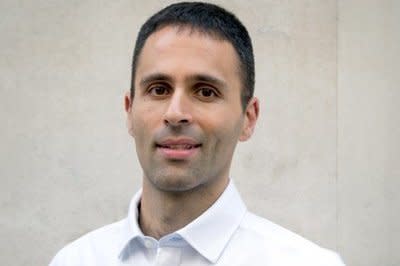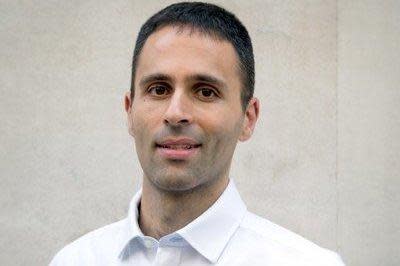The Exodus story inspires us to cherish our freedoms
When Boris Johnson urged the Prime Minister to tell the “Pharaoh in Brussels — let my people go”, he was invoking one of the greatest stories in history: the Exodus. Tomorrow, Jews in London and all over the world will recount the tale as they sit down for the Passover meal — how the Jews were enslaved in Egypt 3,300 years ago, how they escaped from slavery and how they trekked to freedom under the leadership of Moses.
As in most years, this year Passover coincides with Easter, a holy time for millions of Christians, marking the death and resurrection of Jesus.
The Exodus is not only a story attached to a religious festival, but it has had a significant impact on the development of our conception of freedom in the West. Back in the 18th century, as the American colonies sought their independence from Britain, many Americans identified themselves with the Jews from the account of the Exodus. Indeed in 1776, one of the Founding Fathers, Benjamin Franklin, proposed that the seal of the new country should be Moses lifting his stick to divide the Red Sea.
Two hundred years later in the US, the story inspired the civil rights movement of the Sixties. The battle cry of African Americans was “Let my people go”. Their talismanic leader Dr Martin Luther King used the tale in his speeches. In what turned out to be his final address in Tennessee in April 1968, the day before he was assassinated, he told the crowd that his vision was to “watch God’s children in their magnificent trek from the dark dungeons of Egypt through, or rather across the Red Sea, through the wilderness on toward the promised land”.
In a spirit of inter-faith co-operation, a leading American Rabbi, Abraham Joshua Heschel, marched arm-in-arm with Dr King at Selma in 1965. He famously explained afterwards that he felt a religious obligation to take part, and was “praying with his feet”.
Owing to their experience of persecution going back to the Exodus, many Jews strongly supported the civil rights movement and other freedom struggles, such as that against apartheid.
It also served as a template for liberation movements in South America — in El Salvador, Archbishop Oscar Romero, outraged by human rights abuses in his nation’s civil war, spoke out on behalf of these victims. He was assassinated while celebrating mass in 1980.
And here in Britain religious campaigners have taken the concept of liberty from the Bible and effected change, in cases from abolition of slavery to 20th-century welfare reforms.
The Exodus story reminds us of the value of liberty. Around the world it is under threat. Freedom House, in its annual surveys, has shown a decline in global freedom for 13 consecutive years. In Britain freedom of religion is protected, and Christians, Jews, Muslims and all minority groups benefit. As Londoners celebrate Passover and Easter we should cherish the freedoms we have.
Zaki Cooper is a trustee of the Council of Christians and Jews.

 Yahoo News
Yahoo News 

